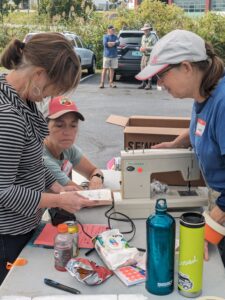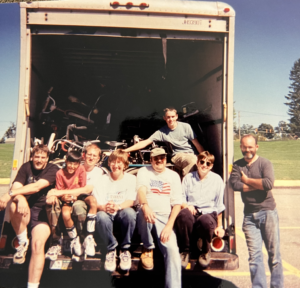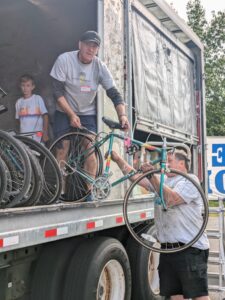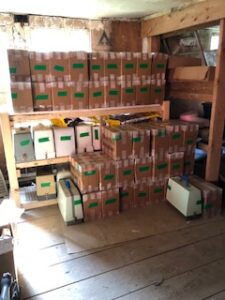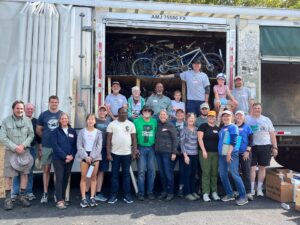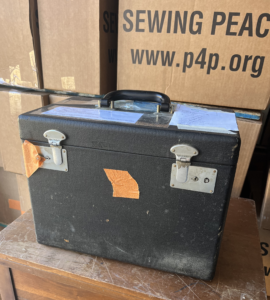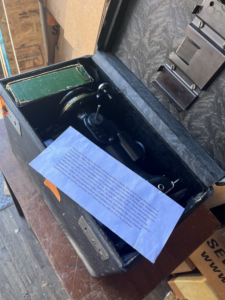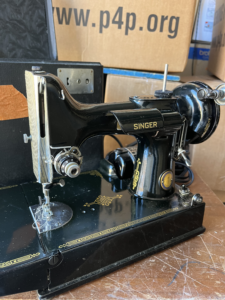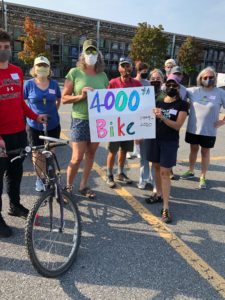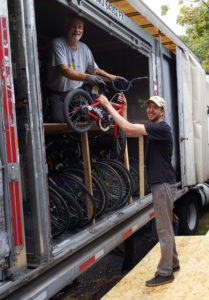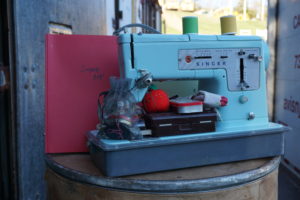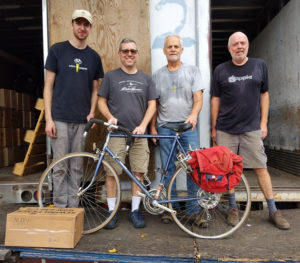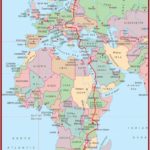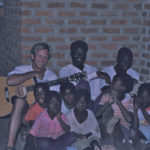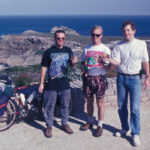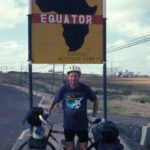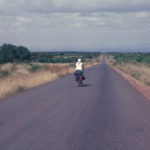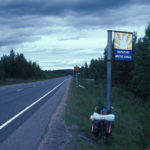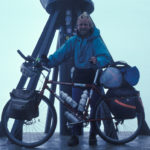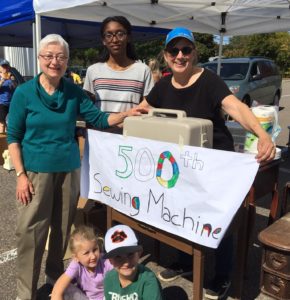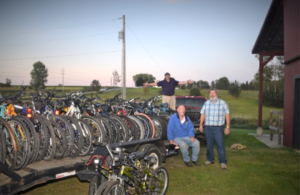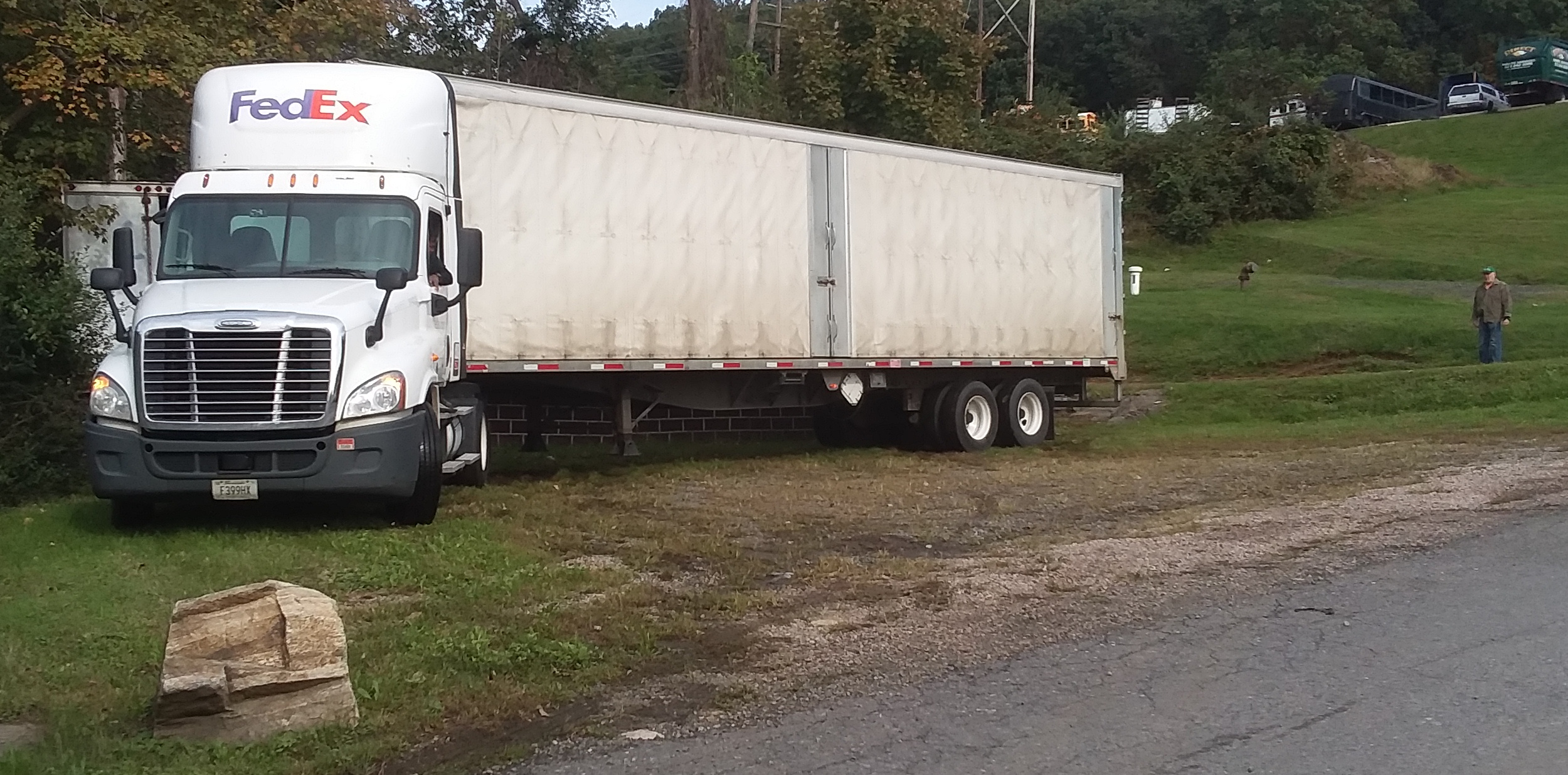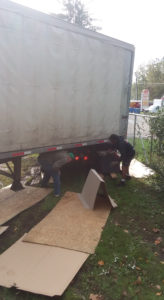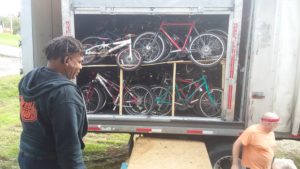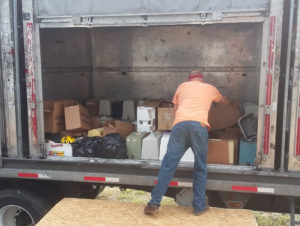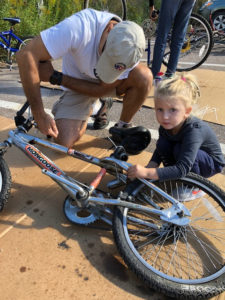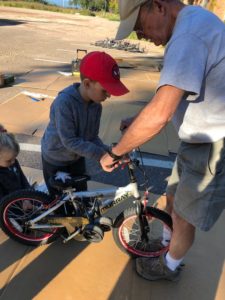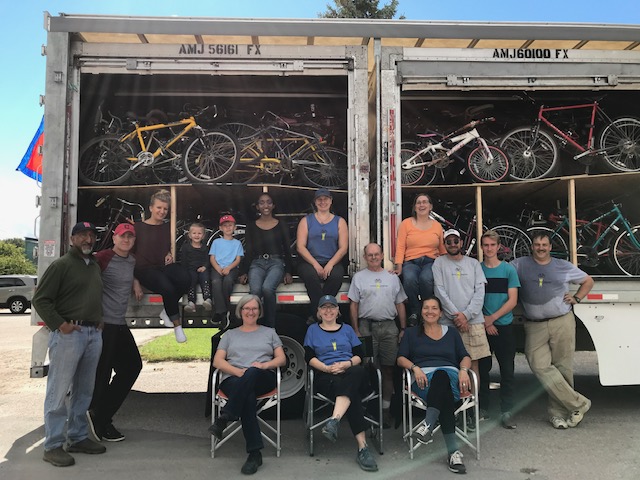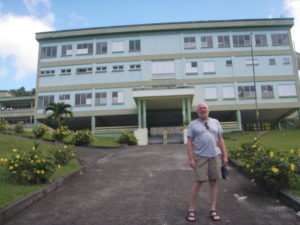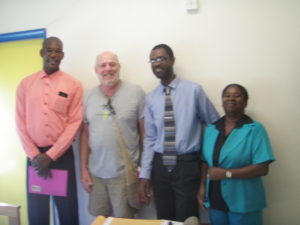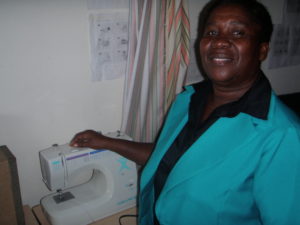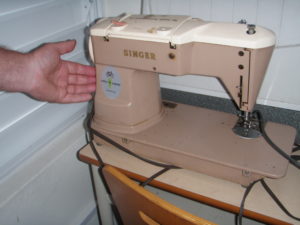Summer 2024 Newsletter
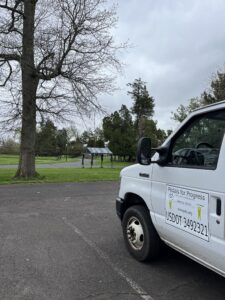 While the “progress” of Pedals for Progress is best shown through our international programs, the success of these programs relies on our collection efforts in the United States. Pedals for Progress acquires 90 percent of our bicycles from our collection drives, which are generally self- sufficient with the suggested donation we request with each item. Our collection drives are our bread and butter, allowing us to collect the items we send overseas while simultaneously fundraising for their shipment.
While the “progress” of Pedals for Progress is best shown through our international programs, the success of these programs relies on our collection efforts in the United States. Pedals for Progress acquires 90 percent of our bicycles from our collection drives, which are generally self- sufficient with the suggested donation we request with each item. Our collection drives are our bread and butter, allowing us to collect the items we send overseas while simultaneously fundraising for their shipment.
Being the “bike guys,” we often get calls about random pockets or “piles” of bikes that appear due to various circumstances. These bikes often surface at universities, police departments, apartment complexes, municipal centers, and beyond, and often lack the additional monetary donation needed for their removal and shipment. While we try our best to answer these calls, it is an area of our organization that needs continued financial support. Despite the challenges, these opportunities often yield the best results in terms of bicycle procurement, both in quantity and quality.
I’d like to highlight a couple of calls we answered this spring from two great collaborations that helped us acquire particularly unique “piles” of bikes. These stories showcase the incredible people behind them and the importance of recycling bicycles. However, financial restrictions often slow these efforts. I hope to raise awareness of these large pockets of bikes, the abundant manpower and passion to handle them, and how additional financial support helps us manage these projects professionally and sustainably.
Duke Farms
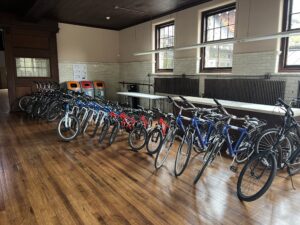 On April 18th, 2024, Pedals for Progress accepted an in-kind donation of 28 high-end bikes from Duke Farms in Hillsborough, NJ. The bicycles donated by Duke Farms were phased out of their rental fleet offered to the public visiting the conservation grounds. Bikes deemed unfit due to wear and tear need to be cycled out quickly by Duke Farms for liability reasons. Being high- quality, name-brand bicycles, these items were still very desirable and great for our partner programs overseas. Although the bikes did not come with a monetary donation for their removal, processing, and warehousing, this was offset by the generosity of our donors and a well-placed grant. These items have been shipped to our program in Belize, where they will continue to be used by 28 motivated individuals.
On April 18th, 2024, Pedals for Progress accepted an in-kind donation of 28 high-end bikes from Duke Farms in Hillsborough, NJ. The bicycles donated by Duke Farms were phased out of their rental fleet offered to the public visiting the conservation grounds. Bikes deemed unfit due to wear and tear need to be cycled out quickly by Duke Farms for liability reasons. Being high- quality, name-brand bicycles, these items were still very desirable and great for our partner programs overseas. Although the bikes did not come with a monetary donation for their removal, processing, and warehousing, this was offset by the generosity of our donors and a well-placed grant. These items have been shipped to our program in Belize, where they will continue to be used by 28 motivated individuals.
In addition to the 28 bicycles from Duke Farms, the charitable roots of the conservation program, in the image of Deloris Duke, continued with an additional 4 adult-sized tricycles also retired from their rental fleet. Only needing minor repairs, some air in the tires, and a few bolts adjusted, the trikes were in fantastic condition. These trikes, along with the 28 bicycles, were used frequently throughout the year by the thousands of tourists Duke Farms receives. The functionality of a well-made bicycle remains valuable even after heavy use.
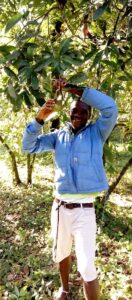 With thousands of miles left on these bicycles, they will prove even more useful as they came at a perfect time, just ahead of our shipment of bicycles to Sierra Leone, for the Slow Food International Kola Nut Farm. Rural Kola Nut farmers, often held back by long walks to market, face time constraints as their nuts and other fruits spoil quickly. Providing these farmers with bicycles will help them transport their produce to market much faster, preventing waste. The tricycles, often rare at our typical collections, will be perfect food haulers with their wide base and large baskets on the rear.
With thousands of miles left on these bicycles, they will prove even more useful as they came at a perfect time, just ahead of our shipment of bicycles to Sierra Leone, for the Slow Food International Kola Nut Farm. Rural Kola Nut farmers, often held back by long walks to market, face time constraints as their nuts and other fruits spoil quickly. Providing these farmers with bicycles will help them transport their produce to market much faster, preventing waste. The tricycles, often rare at our typical collections, will be perfect food haulers with their wide base and large baskets on the rear.
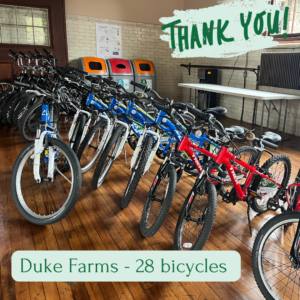 From one farm to the next, we have repurposed and recycled these bicycles to save money, food, and time — all incredibly valuable factors in a farmer’s life. We’re fortunate to have worked with Duke Farms to remove these items and give these bicycles a new home. We’d like to thank Duke Farms for their donations and their interest in our cause. The conservation grounds are a must- see for anyone looking to spend a relaxing afternoon soaking in the sun and all that our great Garden State has to offer.
From one farm to the next, we have repurposed and recycled these bicycles to save money, food, and time — all incredibly valuable factors in a farmer’s life. We’re fortunate to have worked with Duke Farms to remove these items and give these bicycles a new home. We’d like to thank Duke Farms for their donations and their interest in our cause. The conservation grounds are a must- see for anyone looking to spend a relaxing afternoon soaking in the sun and all that our great Garden State has to offer.
Vermont
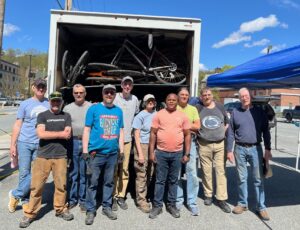 On May 6th, Pedals for Progress continued supporting our overseas partners by recycling 100 Trek bicycles from Vermont Bicycle Shop in Barre, Vermont. The bicycle shop unfortunately experienced an incredible loss of inventory and property damage due to intense flooding on July 11th, 2023, now known as one of “the great floods of Vermont.” The area was ravaged by the intense flooding, showcasing the dangers of climate change with increasingly frequent “ten-year” storms.
On May 6th, Pedals for Progress continued supporting our overseas partners by recycling 100 Trek bicycles from Vermont Bicycle Shop in Barre, Vermont. The bicycle shop unfortunately experienced an incredible loss of inventory and property damage due to intense flooding on July 11th, 2023, now known as one of “the great floods of Vermont.” The area was ravaged by the intense flooding, showcasing the dangers of climate change with increasingly frequent “ten-year” storms.
Thankfully, the bicycles were submerged in water for only a short time and incurred minimal damage. The bicycles, still in near-perfect condition, were deemed a liability by VT Bicycle Shop’s insurance and could not be sold as discounted items. Instead of scrapping the 100 Trek bicycles, Darren, the owner of the bicycle shop, contacted our Vermont satellite group to see if they were interested in the bikes.
Making their own name throughout Vermont from 25 years of collections, the Green Mountain Returned Peace Corps Volunteers (GMRPCV) answered the call to action immediately. Joanne and the GMRPCV group contacted me to discuss how to proceed with the unexpected donation. Transportation and funding were immediate hurdles as the VT group was still months away from their main collection event in September.
Our annual shipment of bicycles from our Vermont collection group to our headquarters in New Jersey is made possible by a once-a-year donation from FedEx, which delivers the items collected throughout the year, ending with their final collection and loading event in September. Darren needed the bicycles removed from his building to complete repairs to his shop damaged in the flood. With our Vermont group primarily based in Burlington, there were no resources available for storage, nor funding for a storage container until their September collection event.
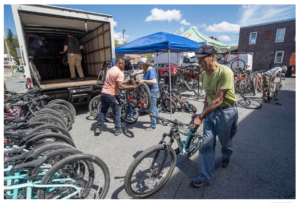 After discussing several solutions, we decided it was best for P4P to transport the 100 bikes from Vermont. With our rental truck ready for our collection season, we treated the pickup like any other of our normal collections, just a few hundred miles outside our typical circuit. With a “collection” date set a few weeks after the initial request, there was still the question of how to process the bikes for shipment and where the funding would come from. Both elements can slow a project, but they are key factors for a P4P collection to succeed.
After discussing several solutions, we decided it was best for P4P to transport the 100 bikes from Vermont. With our rental truck ready for our collection season, we treated the pickup like any other of our normal collections, just a few hundred miles outside our typical circuit. With a “collection” date set a few weeks after the initial request, there was still the question of how to process the bikes for shipment and where the funding would come from. Both elements can slow a project, but they are key factors for a P4P collection to succeed.
The GMRPCV group was nothing short of fantastic, rounding up volunteers from Burlington, Barre, other parts of VT, and even one volunteer found through Reddit! The fundraising side was also a success as Joanne and her network of supporters raised $2,000 to offset shipping costs.
 On May 6th, I left early in the morning and arrived around noon with an empty truck. With the team’s help, we processed all 100 bikes and loaded the truck in just under three hours. It was an incredibly productive afternoon as we powered through the heat processing the bicycles. Joanne went around marking most of the bikes with bright orange tape to mark the occasion and give us a way to track the bikes at the start of their journey.
On May 6th, I left early in the morning and arrived around noon with an empty truck. With the team’s help, we processed all 100 bikes and loaded the truck in just under three hours. It was an incredibly productive afternoon as we powered through the heat processing the bicycles. Joanne went around marking most of the bikes with bright orange tape to mark the occasion and give us a way to track the bikes at the start of their journey.
Personally, it was a very special afternoon, seeing the passion and tenacity everyone had while processing the items. It felt like any one of our collections, getting our hands dirty, talking with volunteers, and getting a good workout loading bikes. The atmosphere was incredibly positive as we were all excited to be part of giving these high-quality bikes a second life. It is not often we get an allotment of nearly brand-new bicycles of this caliber, and it is a pleasure to send them to our partners overseas, where they will go to well-deserving people looking for a better shot at life.
The following day, I brought the bicycles back to New Jersey, where they are warehoused and eagerly waiting for shipment. Since this does not happen often, I am slowly distributing the 100 VT Treks among the next few shipments to spread these items around the world as evenly as possible.
Moments like this are truly special and worth sharing with our supporters. There are so many behind-the-scenes people involved in our organization who make what we do possible. Grassroots efforts like this show the passion and enthusiasm in our country, spreading across the globe. I can’t thank Darren and Vermont Bicycle Shop enough for their selflessness, immediately thinking of others and knowing that these bikes were extremely useful, doing everything to prevent them from being scrapped at the insurance company’s request. I’d also like to thank Joanne and the wonderful team with the GMRPCV, who constantly rise to the call for action at a moment’s notice.

